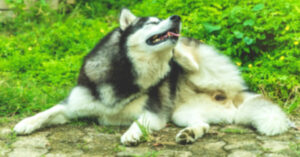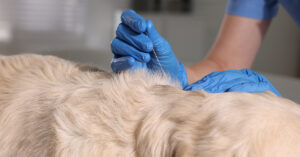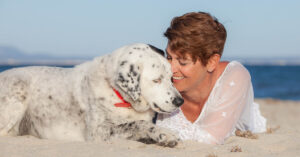As the holidays approach, many pet owners consider sharing seasonal foods and flavors with their pets, making dietary adjustments to celebrate this festive time. However, maintaining a healthy and balanced diet is essential for pets, and holiday treats or new ingredients should be introduced carefully to avoid disrupting their health. This guide provides practical insights into implementing seasonal, natural, and holistic nutrition adjustments for pets, ensuring they enjoy festive meals safely while preserving their well-being.
Understanding the Importance of a Natural and Holistic Diet for Pets
Natural and holistic diets provide pets with nutrient-dense, minimally processed foods that mimic what they would eat in a natural setting. These diets typically avoid artificial additives, preservatives, and fillers, emphasizing whole ingredients like lean proteins, vegetables, fruits, and healthy fats. During the holidays, it’s important to prioritize a balanced nutritional profile to maintain your pet’s health, energy, and digestion while safely introducing seasonal flavors.
Step 1: Introduce Seasonal Ingredients Gradually
Pets’ digestive systems are sensitive to changes, and introducing new foods too quickly can lead to digestive upset. Gradual introduction ensures they accept the new ingredients without adverse effects. Begin by adding small amounts of seasonal foods to their regular meals over several days, monitoring for any signs of allergies or discomfort, such as vomiting, diarrhea, or itching.
Recommended Seasonal Ingredients:
- Pumpkin: A popular holiday ingredient, pumpkin is rich in fiber, aiding digestion. Add a teaspoon to a tablespoon (depending on the pet’s size) to their meal for added fiber and a boost in vitamins A, C, and E.
- Sweet Potatoes: Sweet potatoes are high in vitamins and antioxidants so that they can be lightly cooked and mashed. Add a small portion to meals for a nutritious holiday treat.
- Cranberries: A small number of finely chopped cranberries can offer antioxidants and vitamins. Avoid adding sweeteners or serving canned cranberries, which may contain harmful additives.
- Turkey: Plain, unseasoned turkey provides lean protein. Ensure it is thoroughly cooked, and remove any skin, fat, and bones to prevent choking and indigestion.
Step 2: Balance Macronutrients According to Pet Size and Breed
During the holidays, it’s common for pets to be offered extra treats. Still, it’s crucial to maintain a balanced intake of protein, fat, and carbohydrates based on their size and breed requirements. Excess carbohydrates or fats can lead to digestive issues or weight gain.
Implementation Tips:
- Calculate Daily Caloric Needs: Before adding new foods, review your pet’s daily caloric needs with your veterinarian, as some breeds and sizes require strict dietary controls.
- Portion Control: To prevent overfeeding, substitute seasonal ingredients for a portion of their usual meal rather than adding extra food. For example, if turkey is introduced, reduce the regular protein portion by the amount of turkey offered.
- High-Quality Proteins: Lean meats like turkey can replace a portion of regular protein, but avoid heavily seasoned, fatty cuts such as skin or gravy-coated pieces.
Step 3: Avoid Common Holiday Foods That Are Unsafe for Pets
Certain foods commonly found on holiday tables are toxic to pets and should be strictly avoided. Familiarize yourself with these to prevent accidental exposure during gatherings or meal preparations.
Foods to Avoid:
- Chocolate and Caffeine: Toxic to both dogs and cats, chocolate contains theobromine, which can cause seizures, tremors, and even death.
- Onions and Garlic: Found in many holiday dishes, these can cause gastrointestinal distress and damage to pets’ red blood cells.
- Grapes and Raisins: Even a tiny amount can lead to kidney failure in dogs.
- Alcohol and Caffeine: Both substances are harmful and can lead to severe toxicity in pets.
Encourage guests to avoid feeding pets table scraps, as they may be unaware of these restrictions. Consider providing pet-safe treats as alternatives that guests can offer.
Step 4: Maintain a Regular Feeding Schedule
Holidays often bring changes in routine, but pets benefit from consistency. Sticking to their usual feeding schedule helps support healthy digestion. It reduces the chance of them becoming overly hungry or anxious for food. Avoid using holiday treats as frequent snacks outside of regular mealtimes, as this can lead to begging behaviors and unbalanced dietary intake.
Maintenance Tips:
- Set Mealtimes: Continue feeding pets at their usual times, even during holiday events.
- Limit Treats: Reserve special holiday treats for mealtimes rather than offering them between meals, and ensure they make up only a tiny portion of the daily intake.
- Hydration: Ensure your pet has constant access to fresh water, especially if it is consuming drier holiday treats or meats that may increase its thirst.
Step 5: Monitor and Adjust as Needed
The holidays can be stressful for pets, especially with additional guests or activities. Monitoring their reactions to dietary changes can prevent unwanted issues.
Signs to Watch For:
- Digestive Discomfort: If your pet shows signs of vomiting, diarrhea, or loss of appetite, discontinue the new ingredients and consult your veterinarian if symptoms persist.
- Allergic Reactions: Itching, swelling, or excessive scratching may indicate an allergy to new ingredients.
- Behavioral Changes: If your pet becomes lethargic or irritable, assess whether dietary changes may be causing discomfort and adjust accordingly.
Step 6: Incorporate Probiotics for Digestive Health
Probiotics can support digestion and help manage any minor gastrointestinal changes resulting from dietary shifts. Adding a small amount of pet-safe probiotic powder or yogurt can enhance gut health, especially if seasonal ingredients are new to your pet’s diet.
Implementation Tips:
- Choose Pet-Safe Probiotics: Use only supplements designed for pets, as human formulations may be too potent.
- Add in Small Amounts: Begin with a minimal amount to ensure tolerance, and gradually increase to the recommended dose if well-tolerated.
Final Thoughts on Holiday Dietary Adjustments for Pets
Holiday meals can be an enjoyable experience for your pets when approached thoughtfully and carefully. By incorporating natural, holistic ingredients, maintaining a balanced nutritional profile, and observing your pet’s reactions, you can ensure their festive treats are safe and nourishing. Always consult your veterinarian before making significant dietary changes, especially for pets with existing health conditions, and focus on providing a holiday diet that enhances, rather than disrupts, their well-being.
A balanced approach to seasonal feeding ensures pets experience the joy of the holidays in a safe, healthy, and rewarding way.
At Laguna Beach Veterinary Medical Center, our veterinarians specialize in integrative medicine, combining both holistic and conventional treatment methods to ensure your pet receives comprehensive care. With certification and training in traditional and advanced holistic veterinary practices, our professionals deliver compassionate and unique healing techniques.
Call (949) 464-1000 to schedule an appointment with Dr. Cohen or Dr. Kruger today.



